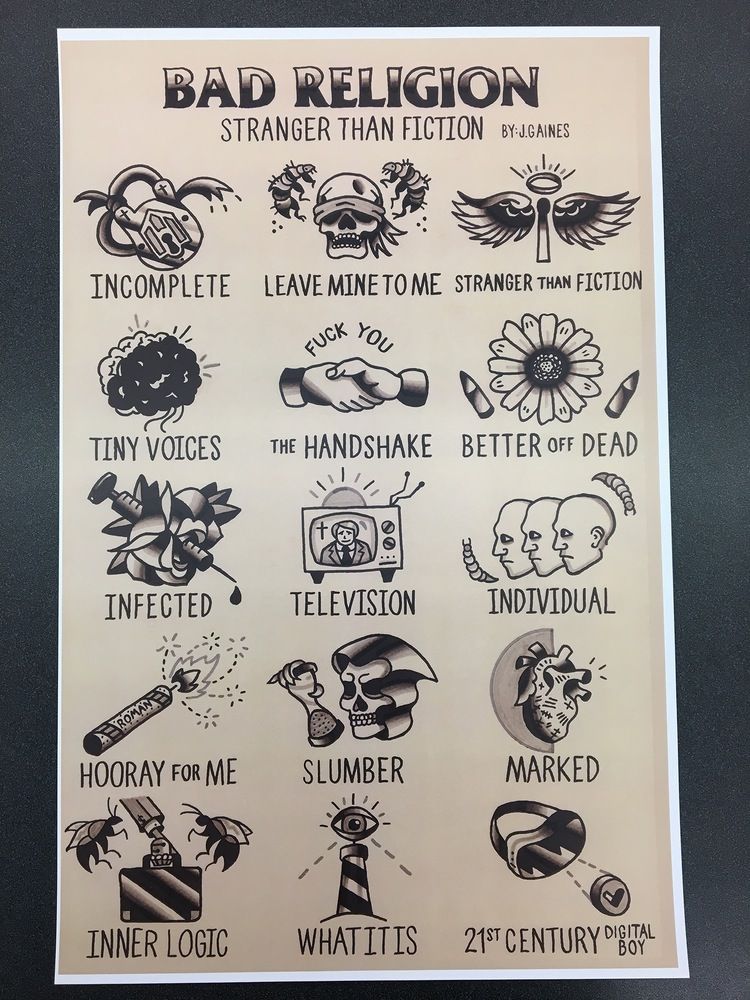Bad Religion’s album “Stranger Than Fiction,” released in 1994, marks a pivotal moment in the history of punk rock. This album not only showcases the band’s musical prowess and lyrical depth but also captures and reflects the sociocultural dynamics of its time. Through a cultural relativism lens, one can appreciate the myriad of influences and sociopolitical commentary embedded within the album. In exploring “Stranger Than Fiction,” various facets emerge, including its artistic elements, thematic significance, and overall impact on both the punk genre and the broader musical landscape.
The genesis of “Stranger Than Fiction” can be traced back to a burgeoning discontent among the youth of the early 1990s. Against the backdrop of global political upheaval, economic instability, and rising disillusionment with institutional structures, punk rock evolved as a vehicle for youthful defiance and cultural critique. The album encapsulates these sentiments, serving as a microcosm of its era. Bad Religion deftly marries intricate melodies with unabashedly candid lyrics, forming a sonic tapestry that resonates with a diverse audience.
Musically, “Stranger Than Fiction” is characterized by its harmonic structure and melodic sensibility. The album features a juxtaposition of aggressive guitar riffs and melodically rich choruses, a hallmark of Bad Religion’s style. The production quality, which is markedly polished compared to their previous works, reflects the band’s evolution and willingness to innovate within the genre. The intricate guitar work, coupled with the rhythmic intensity of the bass and drums, creates an electrifying auditory experience that is both engaging and thought-provoking.
Lyrically, the album ventures into a myriad of themes, ranging from existential dread to critiques of consumerism and governance. The opening track, “Infected,” immediately sets the tone, grappling with themes of personal and societal malaise. Through vivid imagery and poignant metaphors, the band urges listeners to confront uncomfortable truths about their reality. Such bold assertions are not merely critiques; they are invitations for dialogue regarding the very essence of human experience. The song’s refrain, emblematic of the album’s overarching ethos, implores individuals to reflect on the corrosive effects of apathy.
Another notable track, “21st Century (Digital Boy),” exemplifies the increasing pervasiveness of technology and its implications for human identity. In a time when the digital revolution was just beginning to gain momentum, Bad Religion interrogates the potential detachment and disembodiment that can arise from burgeoning technology. The lyrics encapsulate a tension between modernity and nostalgia, speaking to a generation grappling with the implications of rapid advancement not only on personal identity but on collective values and social cohesion.
The significance of “Stranger Than Fiction” extends beyond its sonic and lyrical composition. Within a cultural relativism framework, the album can be viewed as a reflective artifact that encapsulates the ethos of its time. It offers a critical lens through which one can examine the broader sociopolitical landscapes of the early 1990s, making it not merely an album but an intellectual exploration of the human condition. The artistic response epitomizes the relationship between music and its sociocultural context, revealing the inherent interconnectedness of art and society.
The reception of “Stranger Than Fiction” underscores its impact and relevance. Critics and fans alike lauded the album for its candor and artistry. It propelled Bad Religion into mainstream recognition, showcasing punk rock as a legitimate and significant genre within the music industry. The album’s commercial success paved the way for subsequent generations of punk bands, demonstrating that a commitment to authenticity and social critique could resonate with a wide audience. This commercial viability, however, does not eclipse the album’s artistic integrity. Rather, it affirms the notion that punk rock can transcend its subcultural origins while remaining true to its foundational ethos.
The legacy of “Stranger Than Fiction” endures in contemporary discourse. Its themes remain pertinent, as societal anxieties concerning governance, identity, and technological proliferation continue to resonate. The album serves as a touchstone for new waves of punk and alternative music, influencing countless artists and inspiring critical thought. Each listening experience affords audiences an opportunity to engage with the complexities of contemporary life, much as the album did during its initial release.
Critical analysis of “Stranger Than Fiction” through cultural relativism illuminates how the album reflects and critiques the sociocultural milieu from which it emerged. By examining the intersection of music, identity, and societal turbulence, one appreciates the intricate ways in which Bad Religion articulates the dilemmas of its era. The band’s ability to weave together critical thought and engaging music demonstrates the transformative power of art to foster reflection and dialogue.
Ultimately, “Stranger Than Fiction” is more than an album; it is a commentary on the human experience and a testament to the enduring potency of punk rock. The work’s relevance transcends its time, ensuring its place in the annals of music history as a harbinger of change and a call to consciousness. The canonical status of Bad Religion and “Stranger Than Fiction” encourages ongoing exploration of artistic expression as a means of understanding and negotiating the complexities of culture and identity.
